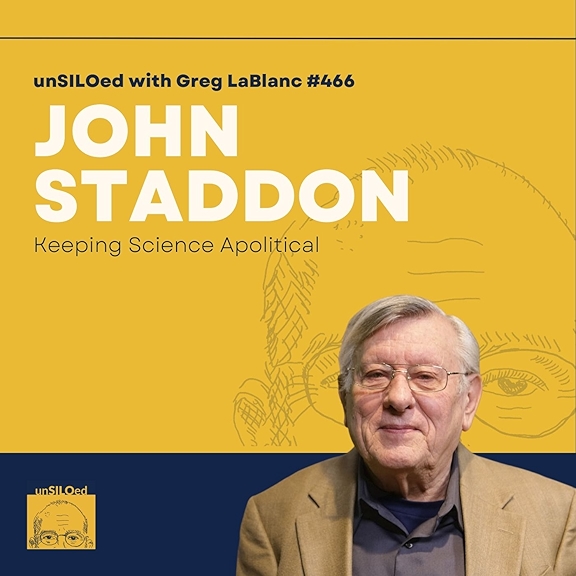23-09-2024
465. Placebo Power: Mindfulness and Its Impact on Health feat. Ellen J. Langer
Ellen J. Langer is a Professor of Psychology at Harvard University. She is also the author of several books, including The Mindful Body: Thinking Our Way to Chronic Health, Mindfulness, Counterclockwise: Mindful Health and the Power of Possibility, and The Power of Mindful Learning.Ellen and Greg discuss the profound influence of mindfulness on decision-making and work-life balance, while challenging the illusions of control, certainty, and predictability. Ellen also breaks down the extraordinary world of placebos, illustrating how mindfulness can have a placebo-like effect on health, and how our beliefs and thoughts can significantly impact our physical health. They also talk about mindfulness in education and healthcare, underscoring its invaluable benefits for patients, doctors, and individuals in general.*unSILOed Podcast is produced by University FM.*Episode Quotes:On the importance of showing-up07:34: If you're going to do something, you should show up for it. And when you do show up for it, everything is better. So as you're actively noticing, you look alive. People find you more attractive. When you're being mindful, people see you as charismatic, authentic, and certainly attractive. Not only that, it makes you healthier, it's fun, and people are going to find you more appealing, but it actually leaves its imprint in the things that we do. They're just better. So if you're painting, playing a musical instrument, writing a report, no matter what you're doing, if you show up for the activity, you're going to produce something better. To my mind, there's no reason, once people truly understand what this work is about, that you would not try to change your ways in some sense and be mindful virtually all the time.Mindfulness is a way of being03:24: People need to understand that mindfulness has nothing to do with meditation. Meditation is not about mindfulness. Meditation is a practice you engage in to result in post-meditative mindfulness. Mindfulness, as we study it, is immediate. And it's not a practice. It's a way of being.Why is going from being mindless to mindful is hard?24:31: Going from being mindless to mindful is hard because when you're not there, you're not there to know you're not there. So that's why the instruction is, "Stop and smell the roses and be in the present." It's sweet but empty because when you're not there, you don't know that you're not there. So you can't fix it, but if you were to throw yourself into some new activity without worrying about being evaluated, and you feel how good it feels to be totally engaged, then just don't accept anything less than that.On being mindful of shifting point of view11:48: When people are mindless, they're more or less acting like automatons. And when you're mindful, you have a general sense of what you want to do. You can have goals and routines, but they're guiding what you're doing. They're not overly determining what you're doing. So I say to my students, "Okay, let's say, on your way to class today, you run into Michelle Obama. And she takes such a liking to you for who knows what reason. And she says, 'Do you want to go have a cup of coffee?'" It would be crazy for you to say, "No, I have to go to class." All right, but I think mindlessly, especially the A students, that's just what they would do, rather than say, "Well, circumstances now are so unusual, I should take advantage of it." And so when you're mindful because you're there, you get to take advantage of opportunities to which you'd otherwise be blind, and you avoid the danger that has not yet arisen.Show Links:Recommended Resources:SocratesEpictetusPrimingThe Counterclockwise StudyFrank A. BeachGuest Profile:Faculty Profile at HarvardEllen J. Langer's WebsiteEllen J. Langer on LinkedInEllen J. Langer on XHer Work:The Mindful Body: Thinking Our Way to Chronic HealthMindfulnessCounterclockwise: Mindful Health and the Power of PossibilityThe Power of Mindful LearningOn Becoming an Artist: Reinventing Yourself Through Mindful Creativity




















